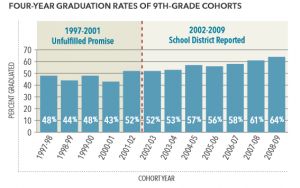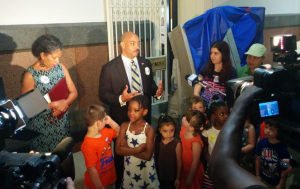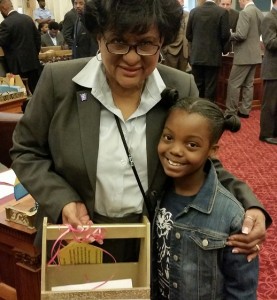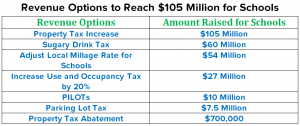Disparities Hold Back Pennsylvania Graduation Gains
Pennsylvania is above the national average when it comes to children graduating high school, but there are glaring disparities between poor and more affluent students, according to a report from Johns Hopkins University and Civic Enterprises. The report found that Pennsylvania’s graduation rate rose to 86% in 2013, higher than the national average of 81.4%. However, a closer look at the numbers finds that more than 90% of children in affluent families graduate, while only 77% of low-income children do the same.
It’s not surprising because most poor children attend underfunded schools. For instance, in Philadelphia, where the graduation rate rose to 64% from 61%, it’s still far behind the state average, according to a report released by Project U-Turn.
Source: A Promise Worth Keeping: Advancing the High School Graduation Rate in PhiladelphiaOne of the goals of the Campaign for Fair Education Funding is to close the disparities between wealthy and poor school districts.
Join PCCY in Harrisburg on June 2nd for one final push to tell our lawmakers to support a funding formula that is predictable and meets the diverse needs of students and school districts. Click here to sign up.
U.S. Senate Enters Testing Fray
The groundswell of parents opting out of standardized testing has caused state legislatures and now the U.S. Congress to reevaluate federal testing requirements. Montana Democratic Senator Jon Tester recently introduced a bill that would cut the number of required testing years from six to three. The bill also gives states the option to administer additional testing if they deem it necessary.
Tester’s legislation kicks off a long overdue review of the need and cost of six years of federally required standardized testing. Click here to email Pennsylvania Senators Bob Casey and Pat Toomey to urge them to look into and reduce the requirements of federal standardized testing.
Three Striking Facts about the Pre-K Ballot Measure
PCCY Board Chair Leslie Russell Winder (left) and D.A. Seth Williams (right) joined children from Friends Child Care Center to hold a mock vote for ballot measure #4 this past Monday.The resounding “yes” vote for the Universal Pre-K ballot measure stands out for three reasons:
- The 124,000 “yes” votes outnumbered the combined total of all of the Mayoral candidates except the victor
- It won approval in every ward in Philadelphia
- It received a greater percentage of “yes” votes than any ballot measure since 2007
About two-thirds of children in Philadelphia do not have access to high-quality pre-k. City Council and the Mayor must convene the 17 member Commission right away so they can get the work on expanding access for all kids.
Students Need Tools for Success
Councilwoman Jannie Blackwell receives a tool box from a student from Chester Arthur Elementary School before Council this past Thursday.Each Philadelphia City Council member now has a tool box that contains a list of revenue options to provide $105 million in new recurring funding for schools.
The revenue options are:
Council can pick and choose which revenue options are best, as long as it adds up to $105 million for the Philadelphia School District.
Click here to download a flyer with all the options Council has to provide tools for our schools.
Next week is a big week for Philadelphia schools. Superintendent Dr. William Hite will testify at a hearing Tuesday, May 26th at 10 am. City Council will take public testimony on the school budget Wednesday, May 27th at 10 am. Click here to get involved.




